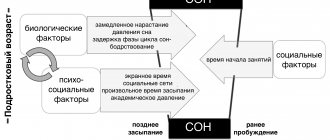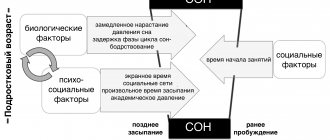.
The physical ability of crying is a useful skill for the first years of life. A person provokes his loved ones by sobbing and attracts their attention. For an adult, tears help to express emotions and ease mental well-being. But everything should be in moderation. It is advisable to stop in a timely manner. To do this, you need to know how to stop crying in order to take care of yourself. Intense sobbing and hysteria with tears can provoke a rapid heart rate, which contributes to increased blood pressure.
Crying is sometimes hard to stop
It happens that sobs need to be hidden. But if tears blur your eyes and burst out, you should use physiological and mental tricks to quickly stop crying.
Factors causing crying
You need to think about the source of the crying. If a person notices the systematic manifestation of tears, then this may signal deep problems. It is worth finding the reasons that contribute to crying:
- you can capture this on the paper of a personal diary: a person can record and then analyze his negative thoughts;
- some people start crying because of music, photographs - in this case it is rational to remove these things out of sight;
- It is worth doing an analysis of your personal reaction to quarrels and bickering: if you boycott scandals and discord, you will be able to avoid the moment of resentment and tears;
- You need to keep your emotions under control: you should behave more energetically and be the master of your life.
A person makes someone guilty: he becomes angry with a teacher for a bad grade, he is offended by his parents or a friend for misunderstanding, and negativity appears after breaking up with a boyfriend or girlfriend. You shouldn’t shift responsibility, then you won’t have to shed tears. Emotions and thoughts can influence actions and actions.
Negative emotions and thoughts destroy a person’s inner world. Systematic irritation contributes to the development of fears and nervous breakdowns, stress and uncertainty in loved ones. Have you ever wondered whether crying is good for you when you're stressed? This is often necessary because low mood and crying can lead to prolonged depression. If a person is forced to cry by some situations from the past, it is necessary to realize that the past is unchanged, it is better to think about real events.
Have a heart-to-heart talk with friends
In order to stop crying for any reason, you should have a heart-to-heart talk with a loved one. This helps to rethink the worldview. There are also psychological help services. You can seek the help of a specialist who will help you stop crying every day and prevent mental anguish. If the situation is critical, you can seek help from a knowledgeable specialist in the field of psychology.
The doctor will determine the factors behind crying and recommend how to quickly calm down and keep emotions under control.
Why do people cry?
We can talk about pathological tearfulness when a person reacts with tears to most episodes of severe emotional stress. No techniques for suppressing tear production will help here - it is necessary to work with a psychologist who will work with the root cause of stress, hidden in the patient’s childhood or acquired later.
Children cry when they do not understand what is happening, or when they do not have enough personal experience to assess the situation. Having matured, a person begins to filter emotions by degree of importance, focusing on acquired skills. The strongest emotions require mandatory release, otherwise the individual risks leading himself to a nervous breakdown.
Some people need to cry immediately upon receiving stressful information, and this reaction is called “immediate” - it is the most difficult to deal with and it is better to allow it to manifest itself and clear the mind of negativity.
Another type of reaction is called “delayed”, and it can be observed in introverts who are accustomed to not showing their feelings. Often these people do not allow themselves to relax and immerse themselves in emotions for a long time, but there comes a time when stress accumulates and the person begins to cry, seemingly for no particular reason.
Physiological methods
A person can cry over little things, but not everyone knows how to prevent it. There are people who are so emotional that their mood changes at any sensitive moment. In this case, it is worth trying methods that will help you stop crying.
- Blinking frequently or not blinking at all. For some people, frequent blinking or lack thereof, as well as opening their eyes to their full width, causes tears. When the muscles are tense and the eyes are wide open, they stop the flow of tears.
- Smile. To stop being sad, you can laugh out loud. This has a positive effect on the entire body. Laughter eliminates irritation, dissatisfaction and prevents the occurrence of nervous tension. You can go through comical, funny and amusing situations in your memory or see something funny on the side.
- You can stop the flow of tears by squeezing your nose. The source of this method is physiological patterns: the tear ducts run from the bottom of the eyes to the nose.
- Muscle relaxation. Tearfulness is caused by prolonged nervous overstrain and neuroses. The following exercises will help you unload. You can start by tensing and weakening the muscles of your toes, gradually moving to your ankles, and then your pelvic muscles. And follow further, right up to the head. This must be done alternately for 30 seconds. This method also helps solve sleep problems.
- Painful sensations. You can try to distract yourself from crying by causing yourself minor discomfort. Pinch, pull hair. This distracting action is suitable if there are no traces left on the body. You shouldn't engage in tyranny.
- Control over the body. If the approach of tears is close, move. Walk, stretch your fists. This is sometimes enough to stop crying. Great effort is required to control the body.
- Retreat. In order to stop crying when you are shouted at, you can leave the place of conflict to prevent the manifestation of emotions. Once your peace of mind is restored, you can resume the conversation.
I can’t hold back my tears: why are my eyes watering?
I will give some of the most common explanations for this phenomenon.
- Damage to the mucous membrane or entry of debris. If your eye is watering for a long time and it causes discomfort, immediately go to the mirror and carefully examine it. Then rinse your face thoroughly with water at room temperature.
- Inflammatory process. Bacteria, viruses and fungi can penetrate the mucous membrane, causing increased tearing. If you encounter this problem, rush to see an ophthalmologist. He will definitely prescribe you special eye drops that contain an antibiotic.
- Allergic reaction. It is quite difficult to stop tearfulness if you have allergies; you should consult a doctor who will prescribe you medications.
- Onion. To avoid crying while cutting such a vegetable, first hold a kitchen knife and the onion under running cold water. This way, the substance that causes tearing will dissolve and not get into the air.
- Fatigue and tiredness. Such tearfulness is relieved with the help of tea compresses. Dip cotton pads into the tea leaves and apply them to your eyes, wait 15-20 minutes. It is better to carry out this procedure before bedtime. This method also helps fight minor eye inflammations.
- Emotions. It is difficult to stop tears that are caused by an emotional outburst. You shouldn’t hold them back, it’s better to let yourself cry, and then think about some happy moment. This way you will distract yourself from the negativity and suppress the rush of emotions.
Psychological methods
There are certain ways that will help you stop feeling sorry for yourself and crying over little things.
- Leave for later. Whenever you want to cry, you should try to postpone this idea. Even if it is difficult to do, you must try to normalize your mental balance. Concentration is important. It is necessary to mentally gather yourself in order to overcome the tears that have come. Do not forget that the absence of crying is generally impossible. Systematic suppression of tears contributes to mental disorders and breakdowns. You can resort to something that can distract you: watch a funny video on the Internet, count examples.
- Meditation. In this case, it is not necessary to go deep into yoga; you can study several methods, namely: you should retire, position yourself so that it is comfortable, close your eyes and breathe in and out slowly and deeply.
- Put it on paper. You can write about what upsets you and makes you cry. This method is equivalent to a heart-to-heart conversation with a friend.
- Gratitude. Many times a person may want to cry because of problems on the personal front. In this case, you need to think about past negative situations and stop feeling sorry for yourself. It is worth understanding that more serious problems were experienced. Don’t forget to thank fate and God for the good moments in life.
Distraction
If you are wondering how to never cry, we have to disappoint you: it is impossible. No wonder the poet said: “He who did not cry did not live.” But you can reduce your worries to a minimum. How? Learn to switch and get distracted. If you feel like it’s “rushing” and is about to overwhelm you, try to distract yourself. Some people grab a vacuum cleaner or washing powder to do this, others enthusiastically scribble on a typewriter, trying to kill their teeth with anticipation of a new outfit. Some people are saved by the kitchen and an original recipe, while others pull themselves out of the swamp of precipice by rhythmic music, a comedy film or an action-packed book, prayer, meditation, sports equipment and even sex... All the means here are good, as long as they provide the necessary mental release and serve effective lightning conductor.
Evidence by contradiction
How not to cry if you want to? Another good remedy is the ability to look at a problem from a slightly different position, when it ceases to seem fatal. As in geometry - proof by contradiction. Has your husband left for someone else? Yes, it hurts, it’s hard, it’s offensive, it’s hopeless... You can endlessly select epithets. Or you can sit down and try to think differently: and “his” departure - prospects for new acquaintances, hobbies, flirting, and so on. One page of life is turned - another begins. If there are children, then, of course, the situation is more complicated. But no one can cancel the financial and other help of the “former”! Therefore, you should not behave as if “life was cut short.” No! What makes us stronger is to adopt this worldly wisdom, and it will teach you how not to cry from pain, but to protect yourself, your inner world from external cruelty.
When to restrain yourself
We looked at situations in which tears are a protective natural reaction of the body to external stimuli. However, any emotion is a double-edged sword. When it acquires affective, i.e. excessive, exaggerated forms, the picture also begins to take on a clinical appearance. And here, indeed, you should understand that in other cases it is better to hold back and not cry than to let yourself go and whine about every occasion. And the situation is not always conducive to open expression of feelings. If you have been insulted, then showing tears in front of the offender means humiliating yourself even more, showing your own weakness and sensitivity, that is, giving your enemy another reason to gloat and triumph. Do you need this? So let's think about how to learn not to cry in an inappropriate environment.
Wedge with wedge
In moments of deep stress, when tears are constantly welling up in your eyes and nothing is going well, you don’t need to force positive emotions in yourself, but it’s better to do the opposite - accept your sadness and let it dissolve on its own. Funny comedies and joyful music will serve as a reminder that while everything is bad here, someone is doing very well, and such thoughts will only add to the negativity. How to hold back tears?
Philosophical life films and songs about unhappy love, sounding from headphones, are the best way to reboot yourself and get over grief in a short time. You can even create a separate playlist of “music for depression” and turn it on during particularly joyless moments - then returning to normal life will take less time.
How to learn to hold back your tears
There are several physical ways to learn to hold back tears:
- Change body position. If you were sitting before, it is better to get up and walk. You can move the chair and move the papers. In general, it is recommended to act according to the situation.
- It is recommended to take a slow and deep breath, straighten your shoulders and raise your head up.
- You can clench and unclench your fingers. It is also acceptable to pinch your palm.
- It's worth drinking some water. It is recommended to take deep and slow sips.
- It is permissible to shift your gaze. In this case, you need to look into the distance at the picture that hangs on the wall.
general characteristics
Crying is a psychophysiological reaction that is accompanied by the release of tears, a sharp change in the rhythm of breathing, blood pressure and heartbeat, and involuntary contraction of the superciliary and periocular muscles. In origin, it is a strong one-time mental experience that occurs in response to intense negative or positive stimuli. From a social point of view, crying is a way of expressing strong emotions. In childhood, physical pain is a common cause of tears. As you get older, this reaction weakens, but can persist in women with increased emotional lability. The term “tearfulness” refers to a character trait or temporary feature of the emotional-volitional sphere. It manifests itself as emotional imbalance, tearfulness: a person cries every day, the cause of tears is random memories, a tense conversation, the unpleasant intonation of the interlocutor, a scene from a movie. Often, tearfulness reduces social activity, interferes with maintaining close relationships, and provokes irritability and misunderstanding on the part of others.
Will pills help reduce tearfulness?
You may think: why torture yourself with different methods if sedative pills perfectly help stabilize your emotional state. I agree, they really help. But there are also negative consequences of using drugs.
- Sedatives slow down the reaction and cause drowsiness. You should not drive while taking them.
- Pills don't help you overcome emotions, they simply dull their severity. The effect of sedatives is even compared to the effect of alcohol.
- Anti-anxiety medications are addictive. Sometimes people have to seek medical help to overcome their addiction to sedatives.











